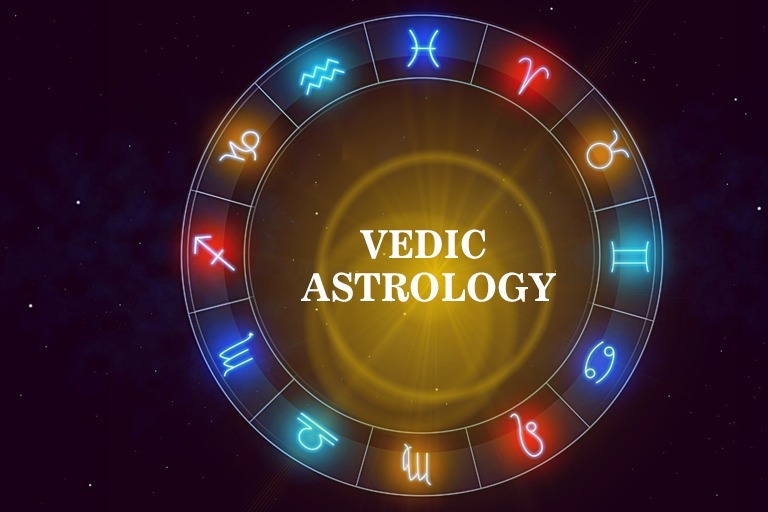
Vedic astrology, or Jyotish Shastra, has been practiced for thousands of years as a tool for understanding the cosmic influences on human life. While it is often used For Vedic Astrology gaining insights into one’s personal growth, career, and health, it also plays a crucial role in matters of the heart. In Vedic astrology, the concept of love and compatibility is deeply tied to the alignment of the stars and planets at the time of birth. By examining the birth charts of two individuals, astrologers can assess their compatibility, predict potential challenges in the relationship, and offer guidance on how to nurture love. This article explores how Vedic astrology is used to understand love and compatibility, offering insights into how your stars may align with someone else’s.
In Vedic astrology, one of the most important elements in assessing romantic compatibility is the analysis of the Janma Kundali (birth chart) of both individuals. Each person’s birth chart contains the positions of the planets at the time of their birth, and these planetary positions influence their personality, emotions, and relationships. One of the primary factors that Vedic astrologers consider when examining love compatibility is the Moon sign. The Moon sign represents the emotional nature of a person, and it plays a significant role in how they connect with others on an emotional and psychological level. If two people’s Moon signs are well-aligned, it suggests a deep emotional connection, making it easier for them to understand and support each other in a relationship.
Another crucial aspect in Vedic astrology is the 7th house, which represents marriage and long-term partnerships. The planets placed in or aspecting the 7th house, as well as the ruler of the 7th house, offer valuable insights into a person’s attitude toward relationships and their ideal partner. If both partners have favorable planetary placements in their 7th house or related areas, it indicates a strong potential for a harmonious relationship. However, if the planets are in difficult positions or there are challenging aspects between the partners’ 7th houses, there could be obstacles or imbalances in the relationship that need to be addressed. Vedic astrology offers remedies, such as specific rituals or gemstones, to help mitigate these challenges and create a more balanced partnership.
The Navamsa chart, an important divisional chart in Vedic astrology, is another tool used to assess compatibility. The Navamsa chart is considered to reveal deeper aspects of a person’s life, particularly their marriage and spiritual pursuits. By comparing the Navamsa charts of two individuals, an astrologer can gain insights into the overall strength of the relationship and the potential for a long-term commitment. A favorable Navamsa chart suggests that the couple has a strong foundation for marriage, while a challenging chart may indicate that the relationship will require extra effort, understanding, and adjustment to succeed.
Guna Milan, also known as Ashtakoota matching, is one of the most well-known and widely used methods in Vedic astrology to assess love compatibility. It involves comparing the birth charts of two individuals based on eight different criteria or “kootas.” These kootas include aspects such as mental compatibility (based on the Moon signs), emotional compatibility, health, family life, and sexual harmony. Each koota is assigned points, and the total score determines the overall compatibility of the couple. In traditional Vedic astrology, a score of 18 points or higher out of 36 is considered ideal, suggesting that the couple has a strong potential for a happy, lasting relationship. However, it’s important to remember that Guna Milan is just one aspect of compatibility, and other factors such as mutual understanding, shared values, and emotional maturity are equally crucial for a successful relationship.
In addition to Guna Milan, Vedic astrology also places importance on Dasha periods, the planetary periods that influence a person’s life at different stages. These Dasha periods can play a significant role in the timing of relationships and the dynamics between partners. For example, a person might go through a period ruled by a planet that governs love, such as Venus or the Moon, making it an ideal time for new relationships or deepening existing ones. Conversely, challenging Dasha periods could bring emotional turbulence, misunderstandings, or separations. By understanding the Dasha cycles of both partners, Vedic astrology can offer guidance on the best times to start or strengthen a relationship, as well as when it might be more difficult to navigate romantic challenges.
Lastly, the Karmic aspect of love is deeply ingrained in Vedic astrology. According to this system, relationships are not solely based on immediate attractions or personal preferences but are influenced by past-life karmas. The connections that we form in this life, including romantic relationships, are often the result of karmic bonds that were created in previous lifetimes. Through the analysis of planetary positions, aspects, and the Dasha system, Vedic astrology can uncover karmic patterns that shape the way two people come together in this life. This understanding can provide a sense of purpose and insight into the deeper lessons that a couple is meant to learn together. If a relationship is karmically difficult, Vedic astrology offers remedies such as spiritual practices, mantra chanting, and specific rituals to help clear negative karmic influences and allow the couple to grow together.
In conclusion, Vedic astrology provides a powerful framework for understanding love and compatibility. By examining the birth charts of two individuals, analyzing their Moon signs, 7th house placements, Navamsa charts, and Guna Milan scores, astrologers can offer valuable insights into the potential dynamics of a romantic relationship. Vedic astrology goes beyond simple compatibility, delving into the karmic forces at play and offering remedies to enhance the relationship’s strength and longevity. While astrology can guide you toward understanding your relationship, it is ultimately your commitment, communication, and mutual growth that will determine the success of your love life. Whether you seek to strengthen an existing bond or are looking for a deeper connection with a new partner, Vedic astrology can illuminate the path toward love and harmony.